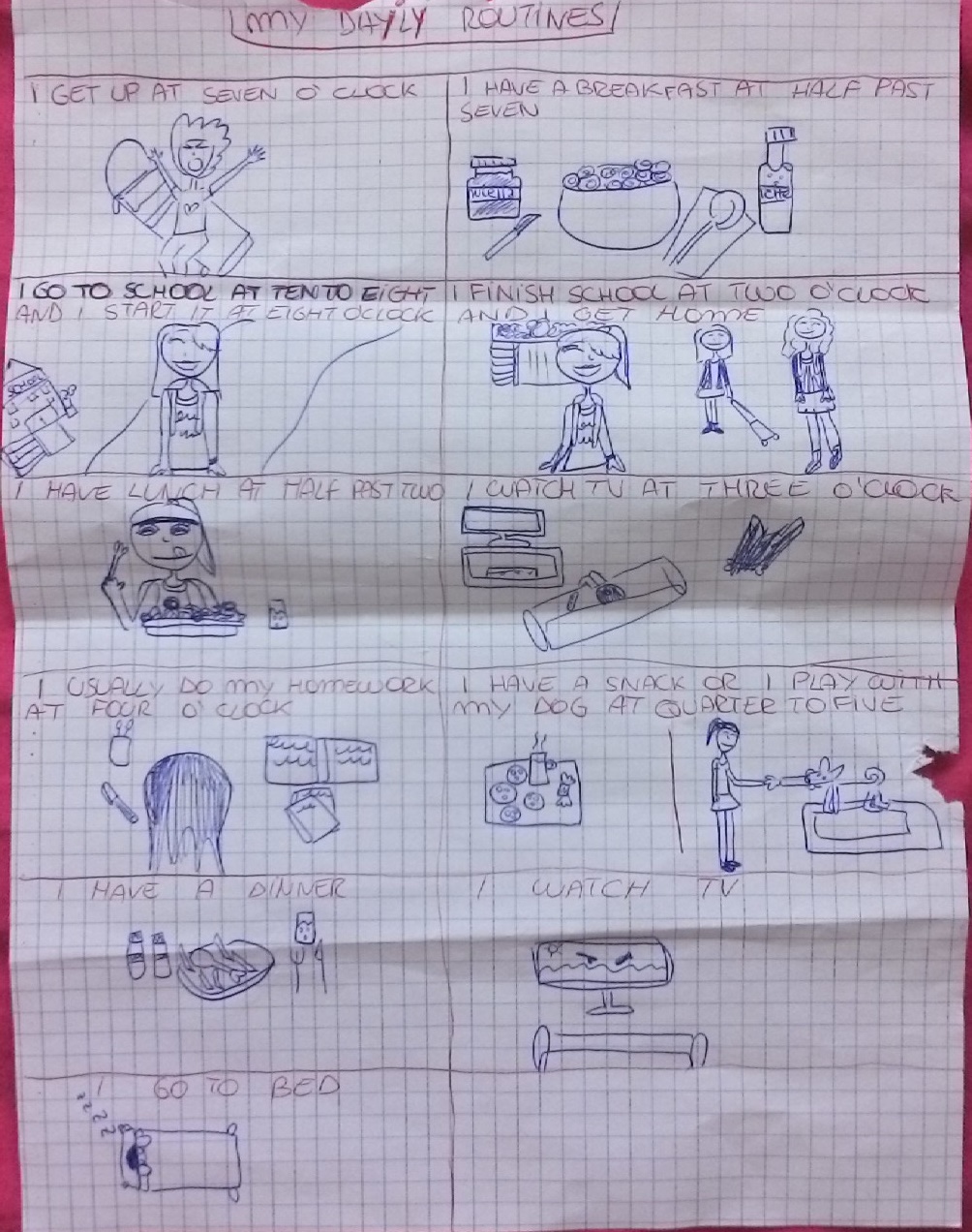Hello!
I hope your week has gone smoothly.
This week everything has happened as usual for me.
Have a look at my daily routine:
I always start my day with a cup of coffee but I rarely eat breakfast at home. I usually go to work by subway but I sometimes take the bus. I often watch TV in the evening but I hardly ever go to the cinema during the week. I never go to bed before 10 p.m.
Inizio sempre la mia giornata con una tazza di caffè ma raramente faccio colazione a casa. Di solito vado al lavoro in metro ma a volte prendo l’autobus. Spesso di sera guardo la TV, ma non vado quasi mai al cinema durante la settimana. Non vado mai a letto prima delle 10 di sera.
In the text above, adverbs of frequency were used. Adverbs of frequency are used to state how often we do something.
To understand adverbs of frequency better, look at the following chart:
|
|
|
|
|
|
|
|||||||
|
|
|
|
|
|
|
Note that adverbs of frequency usually go between the subject and the verb. For example:
He never drinks beer.
Non beve mai la birra.
They usually have cereal for breakfast.
Di solito fanno colazione con i cereali.
You always wake up early.
Ti svegli sempre presto.
However, adverbs of frequency go after the verb “to be”. Here are some examples:
She is hardly ever happy.
Non è quasi mai felice.
We are often tired.
Siamo spesso stanchi.
Example:
During the week I usually get up at half past seven, I wash my face and then I have breakfast.
I get to school at a quarter to eight. The bell rings at 8 o’clock and I go into my classroom.
When my classes finish, at half past one, I go home and have lunch with my family.
In the afternoon I watch TV for about an hour, then I do my homework.
Sometimes I surf on internet or chat with my friends on facebook or msn.
I have dinner at eight o’clock in the evening.
Next I watch TV with my parents and finally I go to sleep.
The weekends are quite different, infact I usually sleep until 9:30am and then I go out with my friends.
In winter we usually go to the cinema and then to a restaurant or to a pub.
In spring we go to play beach volley and in the evening we go out for a walk.
Present Simple – Daily routines
Wake Up! Daily Routines Song for Kids
|
Let’s look at some adverbs of definite frequency (avverbi di frequenza definita), which are common in English. You may know words like “always“, “sometimes” and “usually“. These are called adverbs of indefinite frequency. However, words like “daily“, “weekly“, “monthly” and “yearly” are called adverbs of definite frequency. Do you know when to use them?Let’s look at some common adverbs of definite frequency.every hour – hourly every day – daily every week – weekly every month – monthly every year – yearly Adverbs of definite frequency, like all adverbs of definite time, tend to go at the end of a sentence. Look at these examples: • Most companies pay taxes yearly. • The cleaner checks the toilets hourly. • The directors meet weekly. • The employees get paid monthly. • I hand in reports daily. Remember that every day, for example, is also an adverb, and just like the rest can be used instead of daily or every week instead of weekly. Sometimes, usually for reasons of emphasis or style, some adverbs of definite frequency may go at the front of the sentence, for example: •Every day she comes to work late! • Every week I wake up sad! |
||||
|
||||

